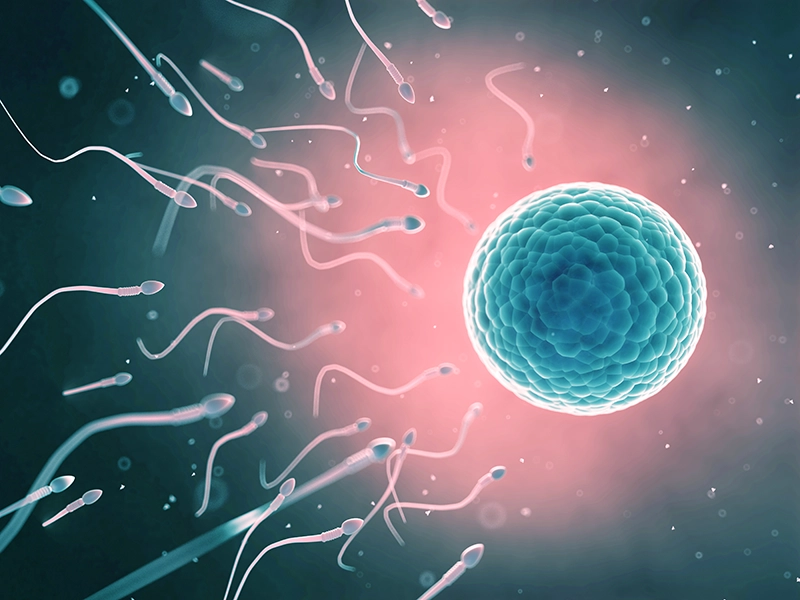June 4: World Fertility Day
World Fertility Day is celebrated on June 4th every year since 2009, to give visibility to couples with reproductive problems, draw attention to fertility issues, and identify the right time to consult a specialist.
The Crucial Figure of New Life
The choice of this particular date is due to the relationship between the numbers “4” and “6,” symbolizing the days of existence of a human embryo before implantation in the mother’s uterus, such as through in vitro fertilization. This period is crucial in the pregnancy process and is filled with hope and expectation for couples wishing to start a family.
One in Six Adults is Infertile During Their Lifetime
However, in April last year, a report by the World Health Organization (WHO) stated that about 17.5% of adults (i.e., 1 in 6) face this issue at some point in their lives. But what does it mean to be infertile?

Women: Enabled to Give Birth, When Possible…
Infertility is defined as the condition in which a woman, after trying for at least a year (or six months if over 35), has not been able to achieve pregnancy. If she continues to suffer from miscarriages, this is also known as infertility.
Additionally, in 2012, the Inter-American Court of Human Rights classified female infertility as a disease. Report available here.
Infertility in women can be motivated by age, physical or hormonal problems, lifestyle, or even environmental factors. However, in most cases, infertility in women is related to ovulation problems. There are two situations: primary ovarian insufficiency, where the ovaries stop functioning before natural menopause, and polycystic ovary syndrome, where the ovaries cannot regularly release eggs or generate a healthy egg.
Infertility: An Issue That Also Affects Men
In a traditional couple, the man also risks being infertile if, after a year, he has not impregnated his partner. Causes include anatomical or medical conditions in the testicles, blockages in the semen tubes, hormonal issues, high fevers or mumps during development, genetic or hereditary conditions, and environmental or lifestyle factors.
Sperm: Its Absence is a Cause of Infertility
Moreover, a man could be infertile due to a total absence of sperm, which can result from a hormonal imbalance or an obstruction in the passage of sperm. In some cases, men produce less sperm than usual, often due to varicocele, a dilation of the veins in the scrotum, affecting 40% of infertile men.
Options for Addressing Infertility
Now that we know the angles of infertility, let’s look at some options available in Mexico for men. These include assisted reproduction techniques, gamete analysis like semen analysis, and using sperm donors when the patient’s sperm cannot be used.
For women, since 35%-40% of infertility cases are due to fallopian tube obstructions or adhesions, conditions like endometriosis, and uterine fibroids, reproductive surgery is recommended to improve fertility.
Infertility: A Complex Issue
Unfortunately, not all infertility cases can be easily resolved. Some couples have a complicated history in their attempts to conceive, known as “high complexity” cases, requiring advanced reproductive treatments tailored to individual needs.
The evolution of reproductive medicine involves research, scientific and technological advancements, current social demand, and collaborative efforts to address issues like implantation failures, polycystic ovary syndrome, recurrent miscarriages, endometriosis, and low ovarian reserve.
For couples where achieving pregnancy is impossible, considering surrogacy offers hope.
What is UR Crea and How Can It Help with Infertility?
UR Crea Reproductive Medicine has 30 years of experience in reproductive medicine and assisted reproduction services. We offer various treatments tailored to your needs, performing a diagnostic protocol that is key to helping you.
Our network comprises specialized professionals in gynecology, reproductive biology, embryology, perinatology, anesthesiology, and nursing, all trained to provide patient care.
We nurture the dreams of those who long to be parents, offering a trustworthy environment based on ethics and professionalism, providing personal and humane care. Contact us to learn more!
References:
1. World Fertility Day 2023: What is its origin and why is it celebrated on June 4? [Internet]. Accessed May 2024. Available at: https://elcomercio.pe/respuestas/dia-mundial-de-la-fertilidad-2023-cual-es-su-origen-y-por-que-se-celebra-el-4-de-junio-efemerides-revtli-noticia/
2. WHO alerts that one in six people suffer from infertility. [Internet]. Accessed May 2024. Available at: https://www.paho.org/es/noticias/4-4-2023-oms-alerta-que-cada-seis-personas-padece-infertilida
3. Female Infertility. [Internet]. Accessed May 2024. Available at: https://medlineplus.gov/spanish/femaleinfertility.html
4. Male Infertility. [Internet]. Accessed May 2024. Available at: https://medlineplus.gov/spanish/maleinfertility.html
5. How common is male infertility and what are its causes? [Internet]. Accessed May 2024. Available at: https://espanol.nichd.nih.gov/salud/temas/menshealth/informacion/causa
6. Andrology. [Internet]. Accessed May 2024. Available at: https://ur-crea.mx/tratamiento/infertilidad-masculina/
7. Reproductive Surgery. [Internet]. Accessed May 2024. Available at: https://ur-crea.mx/tratamiento/infertilidad-masculina/8. High Complexity. [Internet]. Accessed May 2024. Available at: https://ur-crea.mx/alta-complejidad/








